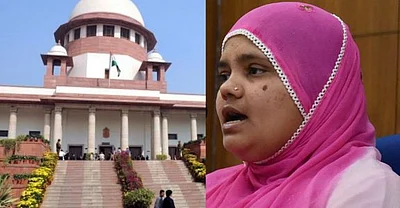From UPSC perspective, the following things are important :
Prelims level: Remission
Mains level: lack of transparency and unchecked discretion in the remission process

Central Idea:
The article discusses a recent Supreme Court decision regarding the remission of 11 convicts in the Bilkis Bano case. It highlights the court’s condemnation of illegalities and collusion between the petitioners and the Gujarat government. While celebrating the decision as a triumph for justice, the author also raises concerns about the lack of transparency and unchecked discretion in the remission process.
Key Highlights:
- The Supreme Court cancels remission orders for 11 convicts due to fraud and collusion with the Gujarat government.
- The decision is praised for upholding the rule of law and addressing the exceptional injustice faced by Bilkis Bano.
- The article acknowledges the inspiring resilience of Bilkis Bano and applauds women’s rights lawyers for their commitment.
Key Challenges:
- Lack of transparency in the formation and decision-making process of remission committees.
- Unchecked discretion and potential for arbitrary exercise of power in remission decisions.
- Concerns about non-application of mind and identical orders in the remission process, as seen in the Bilkis Bano case.
Key Terms:
- Remission: Reduction of sentence through earned days based on rehabilitation activities.
- Per incuriam: Declared as illegal due to a mistake or oversight.
- Retributive punishment: Focused on punishment rather than rehabilitation.
- Judicial review: Examination of a decision for legality and fairness.
- Usurpation of power: Unauthorized assumption of authority.
Key Phrases:
- “Injustice of exceptionalism”: Describes the grant of remission in the Bilkis Bano case as a unique and unjust situation.
- “Resilience that prevailed”: Commends Bilkis Bano’s enduring strength in the face of injustice.
- “Soothing balm”: Refers to the comfort provided by the Supreme Court’s firm decision.
- “Unchecked discretion”: Highlights the potential for arbitrary decision-making in remission cases.
Key Quotes:
- “Rule of law and equality before the law would be empty words if their violation is not a matter of judicial scrutiny.”
- “Remission is rooted in the logic that prisons are meant to be rehabilitative spaces.”
- “Justice Nagarathna’s words come as solace in light of the disturbing memory of the celebrations that followed the release of the 11 convicts.”
Key Examples and References:
- Bilkis Bano case: Illustrates the background of the Supreme Court decision and the injustices faced by the victim.
- Union of India vs V. Sriharan (2015): Reference to a Constitution Bench decision on the appropriate government for remission.
- Epuru Sudhakar vs State of Andhra Pradesh (2006): Supreme Court ruling on the judicial review of remission orders.
Key Facts and Data:
- Life convicts must serve a minimum of 14 years before applying for remission.
- Remission policies in some states deny opportunities based on crime categories.
- The Gujarat government’s remission orders for the 11 convicts were identical.
Critical Analysis:
The article raises concerns about the arbitrary exercise of power in remission decisions, citing the lack of transparency and identical orders in the Bilkis Bano case. It prompts a reflection on whether certain offenders should be ineligible for remission or if a focus on fair compliance with conditions is more appropriate.
Way Forward:
- Advocate for increased transparency in the formation and functioning of remission committees.
- Emphasize the importance of considering individual circumstances and compliance with remission conditions.
- Encourage a reevaluation of remission policies to avoid blanket denials based on crime categories.
- Address the issue of unchecked discretion to ensure a fair and rehabilitative approach in the remission process.
Get an IAS/IPS ranker as your 1: 1 personal mentor for UPSC 2024
